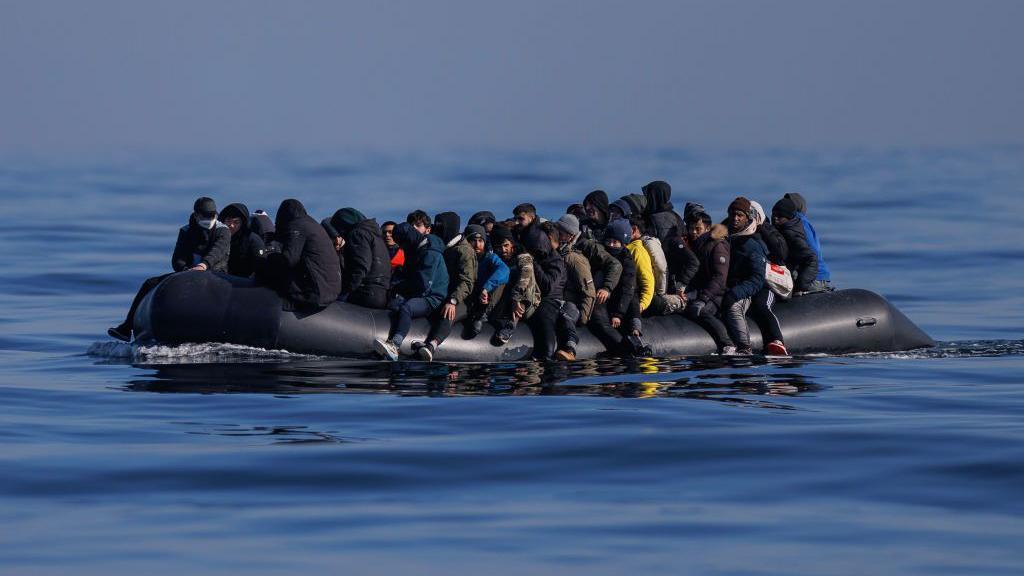New deals with Balkan states to target people smugglers

- Published
The UK has signed new agreements with western Balkan countries to tackle people-smuggling gangs, as part of efforts to bring down small boat crossings.
The deals will increase intelligence sharing and cooperation with Serbia, North Macedonia and Kosovo to intercept and arrest the gangs, with the aim of breaking their business models at source.
The government said the region was a key route used by those who end up in the European Union or UK illegally, with almost 100,000 migrants transiting through the western Balkans last year.
Prime Minister Sir Keir Starmer announced the plans at a meeting of the European Political Community (EPC) in Hungarian capital Budapest on Thursday.
More than 31,000 people have crossed the Channel in small boats so far this year - more than the same period last year.
The UK already has agreements with countries including Albania and Turkey to share intelligence to disrupt people-smuggling gangs.
Sir Keir said: "There is a criminal empire operating on our continent, exacting a horrendous human toll and undermining our national security."
He said the UK would be "at the heart of the efforts to end the scourge of organised immigration crime" but "we cannot do it in isolation".
He added: "We need to go further and faster, alongside our international partners, and take the fight directly to the heart of these vile people smuggling networks."
Home Secretary Yvette Cooper said: "Working more closely with Serbia, North Macedonia and Kosovo, we will share information and intelligence, and work across borders to map out what is happening and where, to break the business models of these unscrupulous gangs at source."
It comes after the government announced an extra £75m funding for the UK's new Border Security Command, which brings together police, intelligence and immigration enforcement agencies to tackle small boat crossings.
Graeme Biggar, the National Crime Agency's (NCA) director general, told BBC Radio 4's Today programme that continuing to work with international partners was "crucial".
He added that it is "very difficult to have exact confidence" on how much measures would reduce the number of UK small boat crossings as "so much depends on what's happening with the rest of the world".
On tackling people-smuggling gangs, Mr Biggar said that what is "particularly hard" for the NCA "is that the people themselves are not illegal, their presence in the UK or in some countries on the way here may be illegal, and often the tools that they are using to get here are not themselves illegal - boats and engines".
"So being able to prove a criminal conspiracy is quite hard," he added.
The EPC was set up in 2022 in response to Russia's invasion of Ukraine as a way of bringing together European heads of government for informal talks and improving cooperation.
The group includes the 27 members of the EU as well as 20 other European countries.